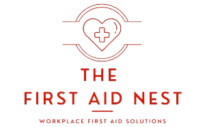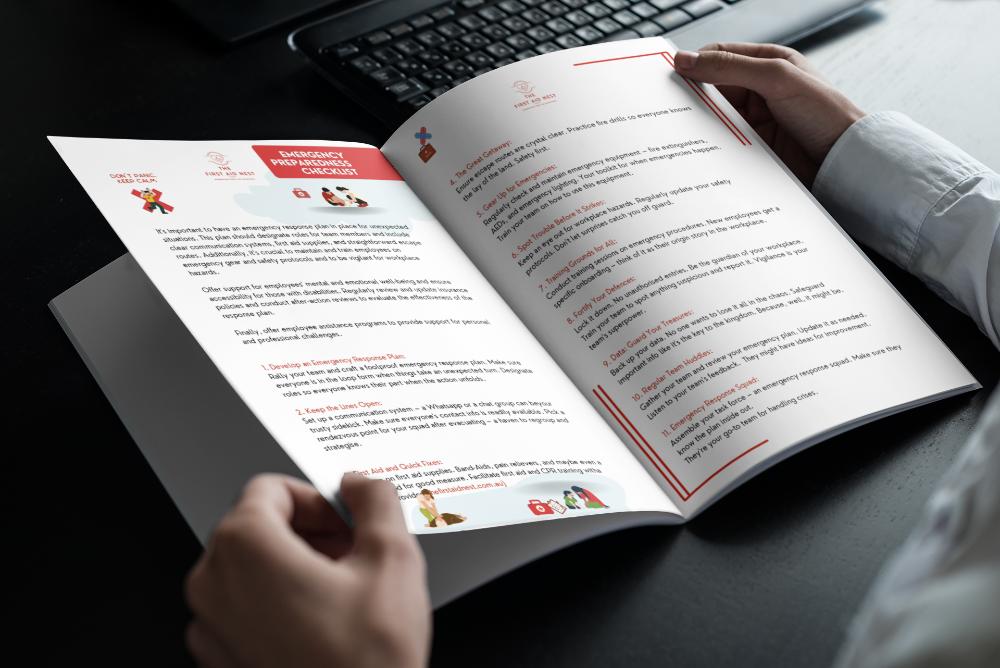The Importance of First Aid Training: Where to Start

First aid, a crucial skill set often overlooked in our daily lives, encompasses the initial and immediate assistance given to any person suffering from either a minor or serious illness or injury.
The knowledge of first aid can be the dividing line between a temporary or permanent injury, or in extreme cases, life and death. It’s not just a set of skills for healthcare professionals, but vital knowledge for everyone, from parents and teachers to employees and employers.
Imagine a scenario where a colleague chokes on food during lunch, or a child scrapes their knee at the park – first aid training turns ordinary individuals into first responders, capable of providing effective help in these critical moments. Statistics reinforce its importance; Bystander CPR, a fundamental first aid skill, is shown to increase the survival rate of cardiac arrest victims by two to three times.
This introduction aims to illuminate the vital role first aid plays in our lives, not just as a response strategy but as a proactive measure to ensure the safety and well-being of ourselves and those around us
Understanding the Basics of First Aid
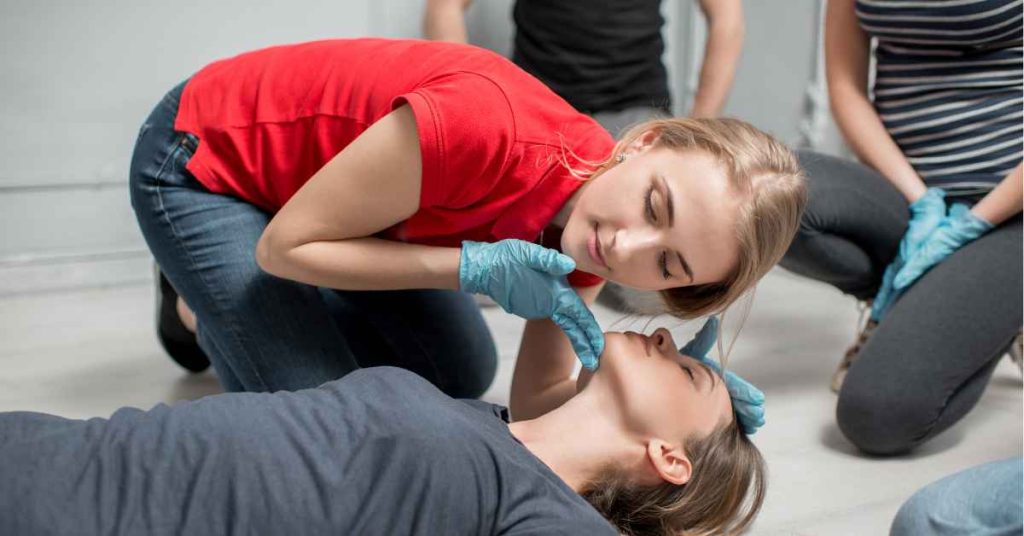
First aid is the immediate assistance provided to a person suffering from a minor or major medical issue, such as injuries or illnesses. This initial care, which can be administered by anyone trained in first aid techniques, aims to preserve life, prevent the condition from worsening, and promote recovery. It includes a range of interventions, from the application of simple techniques such as bandaging a wound to more complex ones like performing cardiopulmonary resuscitation (CPR).
The essence of first aid lies in its timely and effective delivery, often before professional medical help arrives. Its role in saving lives is profound; quick first aid response can mean the difference between a rapid or prolonged recovery, a temporary or permanent disability, and in some cases, life or death. Understanding the basics of first aid is not only about learning various techniques but also about developing the presence of mind and confidence to act swiftly and effectively in emergency situations.
The Scope of First Aid Training
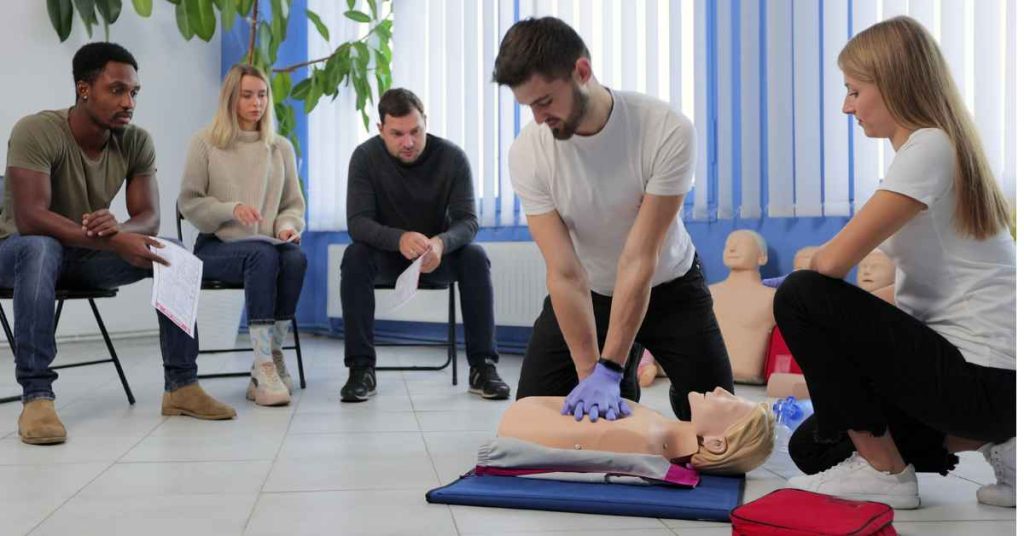
First aid training encompasses a comprehensive set of skills and knowledge areas, each designed to equip individuals with the capabilities to respond effectively to a variety of emergency situations. This training typically includes learning cardiopulmonary resuscitation (CPR), a vital skill for responding to heart attacks and drowning incidents.
It also covers wound care, ranging from minor cuts and scrapes to more serious lacerations and punctures, teaching how to control bleeding and minimize the risk of infection. Additionally, trainees learn to manage fractures and sprains, understanding how to immobilize injuries to prevent further harm. Other crucial areas include recognizing and responding to signs of stroke, handling burns, and dealing with choking emergencies.
The versatility of first aid training is one of its most significant aspects, making it applicable in a myriad of scenarios – from domestic accidents in the home to workplace injuries or public emergencies. This training not only imparts practical skills but also instills confidence, enabling individuals to remain calm and effective in the face of emergencies.
Why Everyone Should Learn First Aid

First aid training is not just for medical professionals; it’s an essential skill set for everyone, irrespective of their profession or background. The ability to provide first aid in emergency situations can be life-saving and can make a substantial difference in the outcome of an accident or medical emergency. For instance, in a situation where a person is choking, immediate and correct first aid intervention can clear the airway and save a life before professional medical help arrives.
Similarly, in the case of a severe allergic reaction, timely administration of an EpiPen by someone trained in first aid can prevent a potentially fatal outcome. First aid skills also significantly boost an individual’s confidence in handling emergency situations.
Knowing what to do reduces panic, enables quicker decision-making, and provides the individual with the means to be a crucial part of emergency response, rather than a bystander. This confidence can be invaluable in both personal and public spaces, making communities safer and more prepared.
Choosing the Right First Aid Course
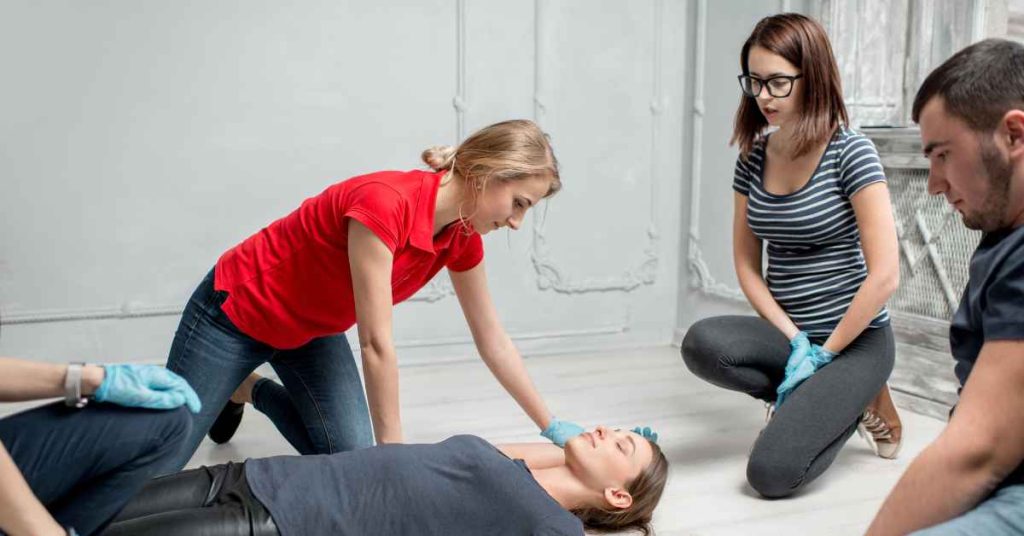
Selecting the right first aid course is a pivotal decision that hinges on one’s personal and professional requirements. For those new to first aid, a basic course covering essential skills like CPR, wound care, and how to respond to common emergencies is an ideal starting point. These foundational courses are designed for the general public and are great for parents, teachers, and anyone interested in gaining fundamental first aid knowledge.
On the other hand, advanced courses delve deeper, suitable for individuals who may face more complex emergency situations in their professional or volunteer roles, such as lifeguards, sports coaches, or community responders. There are also specialized courses tailored to specific needs, like paediatric first aid, which focuses on infants and children, ideal for new parents.
When choosing a first aid course, it’s crucial to look for accredited programs offered by reputable organizations. Accreditation ensures the course meets established standards and the training is up-to-date and comprehensive. It’s also wise to consider the course format – whether in-person, online, or blended – and choose one that fits your learning style and schedule.
Integrating First Aid Knowledge into Daily Life
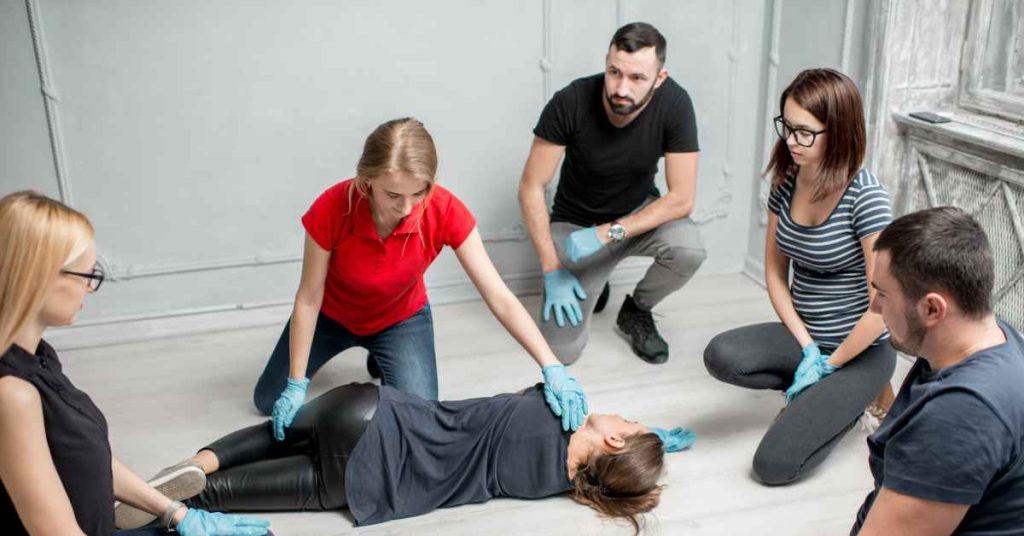
Integrating first aid knowledge into daily life is a proactive approach to ensure safety and preparedness in various environments, from home to work and beyond. A fundamental step is maintaining a well-stocked first aid kit in accessible locations like your home, car, and workplace. These kits should contain essential items such as bandages, antiseptics, sterile gauze, adhesive tape, and scissors, along with items tailored to personal medical needs, like asthma inhalers or EpiPens.
Regularly checking and replenishing these kits is just as important as having them. Moreover, staying current with first aid skills and knowledge is vital. Medical best practices can evolve, so it’s beneficial to refresh your training periodically and stay abreast of the latest techniques and recommendations.
Additionally, sharing knowledge and the importance of first aid training with family, friends, and colleagues can foster a community of safety and preparedness. This collective awareness can be instrumental in effectively managing emergencies, enhancing overall community resilience
The First Aid Nest run public and workplace first aid courses, Australia wide.
Our workplace first aid courses can be run at your site.
Our public classes are here in Sydney and are the best option if you are an individual, a couple or a group
of just a few people.
Our sophisticated system will take the headache out of renewal for you too. Lose your certificate? No problem, just log in and download your certificate again anytime. We will also send you reminders about when your certificate is about to expire!
Book your spot or workplace with us today, contact us with any questions, or head to our FAQ page.
